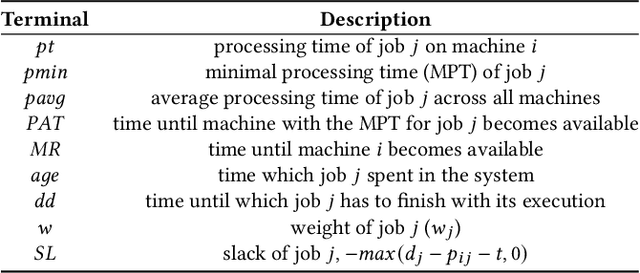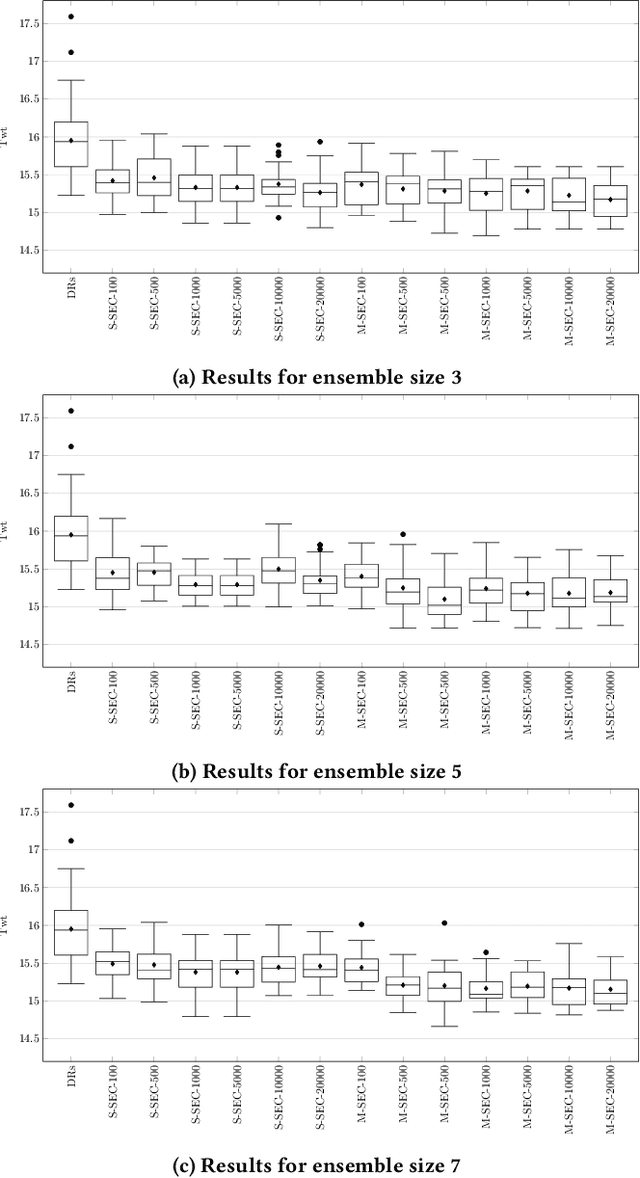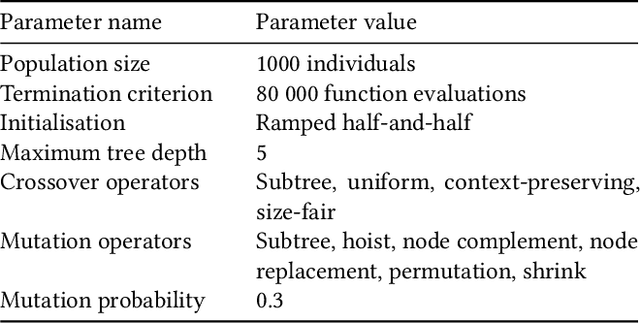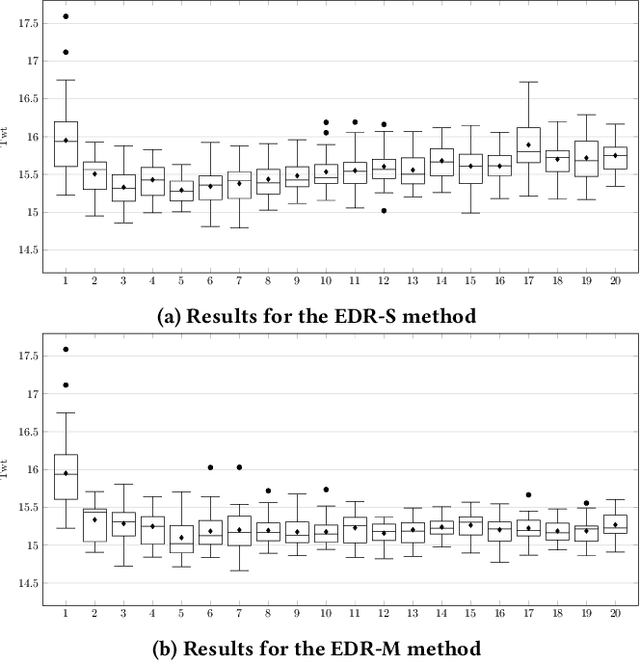Lucija Planinić
Novel ensemble collaboration method for dynamic scheduling problems
Mar 27, 2022



Abstract:Dynamic scheduling problems are important optimisation problems with many real-world applications. Since in dynamic scheduling not all information is available at the start, such problems are usually solved by dispatching rules (DRs), which create the schedule as the system executes. Recently, DRs have been successfully developed using genetic programming. However, a single DR may not efficiently solve different problem instances. Therefore, much research has focused on using DRs collaboratively by forming ensembles. In this paper, a novel ensemble collaboration method for dynamic scheduling is proposed. In this method, DRs are applied independently at each decision point to create a simulation of the schedule for all currently released jobs. Based on these simulations, it is determined which DR makes the best decision and that decision is applied. The results show that the ensembles easily outperform individual DRs for different ensemble sizes. Moreover, the results suggest that it is relatively easy to create good ensembles from a set of independently evolved DRs.
 Add to Chrome
Add to Chrome Add to Firefox
Add to Firefox Add to Edge
Add to Edge